School Level: Middle School-Grade 7
Subject: General Science
Chapter: Air Pollution
Topic: Acid Rain
Objectives: Students learn the definition of acid rain.
Students use the Internet to research pH levels of rainwater for
their state and collect data from their community.
Students investigate the causes of and solutions for acid rain
Prerequisite skills: Basic research skills using Internet Explorer
Basic experience with Excel
Curriculum Areas: Thinking and reasoning
Working with others
Work skills
Class Time: 2-3 Periods
Tools:
Technology productivity tools: Students use productivity tools to collaborate in constructing technology-enhanced models, prepare publications, and produce other creative works.
Technology research tools: Students use technology to locate, evaluate, and collect information from a variety of sources. Students use technology tools to process data and report results.
Teacher guide:
Description
Students research a serious environmental problem—acid rain which affects many communities. They use the Internet to research pH levels of rainwater for their state, collect data from their community, and investigate the causes of and solutions for acid rain. Then, they present data in a Microsoft Office Excel spreadsheet and draw conclusions.
How to begin
Ask students what they think happens to the pollution in our air. Does it just stay there? Acid rain occurs when the pollutants in our atmosphere mix with rainwater and become acid rain, sleet, and snow. We can tell how much acid is in the rainwater by testing the pH level of rainwater. The lower the pH level is, the more acid there is present in the water.
Student activity:
Note: You may want to have students work in teams to complete the research and work individually to answer the questions.
Description
In this activity, you will research levels of rainwater and acid rain in your state, record your findings, and evaluate them.
Software: Microsoft Internet Explorer, Microsoft Office Excel
What to do
· Open Internet Explorer and go to the U.S. Environmental Protection Agency acid rain Web site
· Read the information on the Web page regarding acid rain.
· Go to the National Atmospheric Deposition Web site to collect data for the pH levels of rainwater for your state.
· On the map, click your state. Click each NTN (National Trends Network) site in your state, and record the longitude, latitude, and pH level. To get the pH level, click Trend Plots, click Field pH, and then click Create Plot. Record the information in an Excel spreadsheet.
· Answer the following questions based on your research:
· How does your state compare to "normal" rainwater pH of 5.5?
· What trends in the data do you see for your state?
· What do you think are the major contributors of acid rain in your state?
· What can you do to help prevent acid rain?
Ways to extend the student activity
· Students can collect data from other parts of the country to compare rates of acid rain in different regions.
· Students can create posters or brochures explaining acid rain and what can be done to prevent it.
· Students can write letters to the major pollution producers in their state and express their concern about acid rain.
Assessment: Research, Data collection, Completion of the spreadsheet, Answers to the questions listed in student activity
Friday, July 27, 2007
Wednesday, July 25, 2007
E-Activity 2
1. What is learning to you and why? Link it to the benefits of ICT for students you highlighted earlier in e-Activity 1.
The web definition of learning is as follows
Learning is the process of acquiring knowledge or skill through study, experience or teaching. It is a process that depends on experience and leads to long-term changes in behavior potential. Behavior potential describes the possible behavior of an individual (not actual behavior) in a given situation in order to achieve a goal.
http://www.google.com.pk/search?hl=en&defl=en&q=define:learning&sa=X&oi=glossary_definition&ct=title
One of the most frequently claimed benefits of ICT is that it helps learners to do many “low-order” tasks much more quickly, so that they have time to focus on authentic, higher order, historical thinking. Data handling packages means that pupils do not have to add up tallies, or draw graphs manually: they simply press a button and it is done in an instant. Word processing means that they do not have to laboriously transcribe amended drafts: they can simply cut and paste, ‘drag and drop’ or delete information.
Although ICT does offer these advantages, it does not follow that the time saved is automatically transferred into time spent on more difficult, higher order thinking.
2. Given your view of learning what is teaching to you and why? Link it to the benefits of ICT for your teaching.
In education, teachers are those who teach students or pupils, often a course of study or a practical skill, including learning and thinking skills. There are many different ways to teach and help students learn. This is often referred to as the teacher's pedagogy. When deciding what teaching method to use, a teacher will need to consider students' background knowledge, environment, and their learning goals.
http://www.google.com.pk/search?hl=en&defl=en&q=define:teaching&sa=X&oi=glossary_definition&ct=title
The potential benefits of ICT have not influenced teaching to the extent that might be expected from the influence of ICT in other walks of life. This has highlighted the importance of teachers and others involved in education gaining the knowledge needed to use ICT appropriately so as to exploit the skills which pupils are gaining in ICT for the purpose of learning other subjects.
The role of teacher is changing and the teacher no longer needs to be the main source of knowledge in the classroom. With ICT it is possible for children to learn at different times, in different places, without direct supervision of the expert teacher
3. Given your view of learning and teaching, how would you assess learning?
New forms of student assessment are designed to demonstrate what students are learning and what they can do with their knowledge. Known variously as "alternative" or "more authentic" measures, these assessments require students to "perform" in some way--by writing, demonstrating, explaining, or constructing a project or experiment--so they are also called "performance-based" tests. The idea of such tests is not new. Many classroom teachers routinely evaluate students by asking them to write extended essays or to complete projects, experiments, and portfolios. Here we are using the concept of performance-based assessment used by the Office of Technology Assessment, which defines performance assessment as testing methods that require students to create an answer or product that demonstrates knowledge or skills. Performance assessments may include any of the following categories to items:
Open-ended or constructed response items that ask students to respond in their own words--to "construct" their answers--to questions that may have multiple good answers. Students usually reason out their solutions as part of their answers. Usually students can answer these questions in just a few minutes, and in that way they differ from some of the performance activities described below.
Performance-based items or events: questions, tasks, or activities that require students to perform an action. Although performances can involve demonstrations or presentations, most typically they involve students explaining how they would answer the question or solve a problem by writing a few sentences or paragraphs, drawing and explaining a diagram, or performing an experiment. Such tasks may take from 15 minutes to an hour or more and may involve some work with a group of students who think through the answers and later provide their own individually written answers.
Projects or experiments: extended performance tasks that may take several days or even several weeks to complete. Students generate problems, consider options, propose solutions, and demonstrate their solutions. Students often work in groups, at least for some of the project, to analyze options and to consider ways to present their thinking and conclusions.
Portfolios: collections of student work that show teachers and others who may "score" portfolios the range and quality of student work over a period of time and in various content areas. There are almost as many approaches to compiling and evaluating portfolios as there are proponents of this form of assessment. Portfolios can be used both formally and informally; ideally, portfolios capture the evolution of students' ideas and can be used instructionally and as progress markers for students, teachers, and program evaluators.
http://www.ed.gov/pubs/IASA/newsletters/assess/pt4.html
4. Having explored your views of learning, teaching and assessment, what information will you require planning an ICT integrated lesson / project?
The topic is introduced in an interesting way. It is an opportunity to provide some information but to encourage the students to seek out new information. . It is important not to provide them with everything they need to know, but more the motivation to find out where the student investigates the topic more thoroughly. In these lessons the investigation takes the form of Internet research but it could equally include original research and the use of a variety of problem solving techniques. What is important is that the students are given the opportunity to "free wheel" their way through the materials and not be over directed. We all know however, that they will need some direction and the teacher can circulate, asking important questions, listening to their interactions and ensuring that they remain on task. As teachers, we will all have to resist the urge to be the ones that do the explaining at this point. The student with the opportunity to “explain” or in some way demonstrates their grasp of the concepts after completing their research. The lesson will contain key questions and/or instruction for requiring the student to provide a summary of what they have learned. This can and should, where possible, take the form of class or group discussion as well. The lesson plan the students are expected to work directly on the given assignment. It is their opportunity to demonstrate their application of new information and to present their findings or conclusions to others. It is a good time for submitting materials for evaluation, doing presentations and completing the project or assignment. While it is expected that evaluation will continue throughout the process, this is the section where the teacher evaluates the learning that has occurred. Students normally submit their work or assignments at this point. It is very important at this stage that the students be encouraged to engage in self-evaluation, group evaluation and develop their own tools to do so. The purpose is to examine ways in which they can bring their findings to others or apply their understanding to new and unfamiliar circumstances. Normally, this type of activity will grow out of their excitement for what they have accomplished highly student driven, though teachers may want to gently suggest that the students enter their work in a competition or take their displays to other locations outside of their own school.
The web definition of learning is as follows
Learning is the process of acquiring knowledge or skill through study, experience or teaching. It is a process that depends on experience and leads to long-term changes in behavior potential. Behavior potential describes the possible behavior of an individual (not actual behavior) in a given situation in order to achieve a goal.
http://www.google.com.pk/search?hl=en&defl=en&q=define:learning&sa=X&oi=glossary_definition&ct=title
One of the most frequently claimed benefits of ICT is that it helps learners to do many “low-order” tasks much more quickly, so that they have time to focus on authentic, higher order, historical thinking. Data handling packages means that pupils do not have to add up tallies, or draw graphs manually: they simply press a button and it is done in an instant. Word processing means that they do not have to laboriously transcribe amended drafts: they can simply cut and paste, ‘drag and drop’ or delete information.
Although ICT does offer these advantages, it does not follow that the time saved is automatically transferred into time spent on more difficult, higher order thinking.
2. Given your view of learning what is teaching to you and why? Link it to the benefits of ICT for your teaching.
In education, teachers are those who teach students or pupils, often a course of study or a practical skill, including learning and thinking skills. There are many different ways to teach and help students learn. This is often referred to as the teacher's pedagogy. When deciding what teaching method to use, a teacher will need to consider students' background knowledge, environment, and their learning goals.
http://www.google.com.pk/search?hl=en&defl=en&q=define:teaching&sa=X&oi=glossary_definition&ct=title
The potential benefits of ICT have not influenced teaching to the extent that might be expected from the influence of ICT in other walks of life. This has highlighted the importance of teachers and others involved in education gaining the knowledge needed to use ICT appropriately so as to exploit the skills which pupils are gaining in ICT for the purpose of learning other subjects.
The role of teacher is changing and the teacher no longer needs to be the main source of knowledge in the classroom. With ICT it is possible for children to learn at different times, in different places, without direct supervision of the expert teacher
3. Given your view of learning and teaching, how would you assess learning?
New forms of student assessment are designed to demonstrate what students are learning and what they can do with their knowledge. Known variously as "alternative" or "more authentic" measures, these assessments require students to "perform" in some way--by writing, demonstrating, explaining, or constructing a project or experiment--so they are also called "performance-based" tests. The idea of such tests is not new. Many classroom teachers routinely evaluate students by asking them to write extended essays or to complete projects, experiments, and portfolios. Here we are using the concept of performance-based assessment used by the Office of Technology Assessment, which defines performance assessment as testing methods that require students to create an answer or product that demonstrates knowledge or skills. Performance assessments may include any of the following categories to items:
Open-ended or constructed response items that ask students to respond in their own words--to "construct" their answers--to questions that may have multiple good answers. Students usually reason out their solutions as part of their answers. Usually students can answer these questions in just a few minutes, and in that way they differ from some of the performance activities described below.
Performance-based items or events: questions, tasks, or activities that require students to perform an action. Although performances can involve demonstrations or presentations, most typically they involve students explaining how they would answer the question or solve a problem by writing a few sentences or paragraphs, drawing and explaining a diagram, or performing an experiment. Such tasks may take from 15 minutes to an hour or more and may involve some work with a group of students who think through the answers and later provide their own individually written answers.
Projects or experiments: extended performance tasks that may take several days or even several weeks to complete. Students generate problems, consider options, propose solutions, and demonstrate their solutions. Students often work in groups, at least for some of the project, to analyze options and to consider ways to present their thinking and conclusions.
Portfolios: collections of student work that show teachers and others who may "score" portfolios the range and quality of student work over a period of time and in various content areas. There are almost as many approaches to compiling and evaluating portfolios as there are proponents of this form of assessment. Portfolios can be used both formally and informally; ideally, portfolios capture the evolution of students' ideas and can be used instructionally and as progress markers for students, teachers, and program evaluators.
http://www.ed.gov/pubs/IASA/newsletters/assess/pt4.html
4. Having explored your views of learning, teaching and assessment, what information will you require planning an ICT integrated lesson / project?
The topic is introduced in an interesting way. It is an opportunity to provide some information but to encourage the students to seek out new information. . It is important not to provide them with everything they need to know, but more the motivation to find out where the student investigates the topic more thoroughly. In these lessons the investigation takes the form of Internet research but it could equally include original research and the use of a variety of problem solving techniques. What is important is that the students are given the opportunity to "free wheel" their way through the materials and not be over directed. We all know however, that they will need some direction and the teacher can circulate, asking important questions, listening to their interactions and ensuring that they remain on task. As teachers, we will all have to resist the urge to be the ones that do the explaining at this point. The student with the opportunity to “explain” or in some way demonstrates their grasp of the concepts after completing their research. The lesson will contain key questions and/or instruction for requiring the student to provide a summary of what they have learned. This can and should, where possible, take the form of class or group discussion as well. The lesson plan the students are expected to work directly on the given assignment. It is their opportunity to demonstrate their application of new information and to present their findings or conclusions to others. It is a good time for submitting materials for evaluation, doing presentations and completing the project or assignment. While it is expected that evaluation will continue throughout the process, this is the section where the teacher evaluates the learning that has occurred. Students normally submit their work or assignments at this point. It is very important at this stage that the students be encouraged to engage in self-evaluation, group evaluation and develop their own tools to do so. The purpose is to examine ways in which they can bring their findings to others or apply their understanding to new and unfamiliar circumstances. Normally, this type of activity will grow out of their excitement for what they have accomplished highly student driven, though teachers may want to gently suggest that the students enter their work in a competition or take their displays to other locations outside of their own school.
Saturday, July 21, 2007
Photographs: 9th July 2007-13th July 2007





Course Tutors:
Ms Azra Naseem, Mr Anthony Gioko & Mr Mohammad Umer Daraz
Ms Azra Naseem, Mr Anthony Gioko & Mr Mohammad Umer Daraz
Course Participants:
Amina Khalfe, Arif Qureshi, Fauzia Nawaz, Kishwer Jawaid,
Mohammad Shafi Messo, Munazza Razzak, Nazia Saleem Khoja,
Qurban Ali Muntazir, Sadia Mahar, Safia Khatoon, Shagufta Habib,
Shaista Shahab & Roman Bernard Rodrigues.
My Group:
Amina Khalfe, Shaista Shahab & Roman Rodrigues
Aim of the Course:
The aim of this introductory course is to enable you to integrate information and communications technology (ICT) with teaching and learning
Qurban Ali Muntazir, Sadia Mahar, Safia Khatoon, Shagufta Habib,
Shaista Shahab & Roman Bernard Rodrigues.
My Group:
Amina Khalfe, Shaista Shahab & Roman Rodrigues
Aim of the Course:
The aim of this introductory course is to enable you to integrate information and communications technology (ICT) with teaching and learning
Objectives:
By the end of this course, you should be able to:
• Describe and analyse the need for integrating ICT with learning and teaching in your school;
• Evaluate, select, integrate, test and analyse a range of ICTs for learning and teaching in your own contexts;
• Critique interaction between society and ICT, and its implications for your institutions;
• Reflect on your practice of using ICT for learning and teaching.
Support for Course Participants:
Participants enrolled on this course will have access to a number of AKU-IED library resources: CPs will be able to access numerous academic journals (including archives) in electronic form through an AKU-IED Institutional Subscription with OCLC Online Computer Library Centre, Inc.CPs will also be able to request photocopies of materials related to the course (within the copyright laws of allowable limit for educational purposes) to be mailed to them directly from the AKU-IED Library. These services will be available to all CPs.
• Reflect on your practice of using ICT for learning and teaching.
Support for Course Participants:
Participants enrolled on this course will have access to a number of AKU-IED library resources: CPs will be able to access numerous academic journals (including archives) in electronic form through an AKU-IED Institutional Subscription with OCLC Online Computer Library Centre, Inc.CPs will also be able to request photocopies of materials related to the course (within the copyright laws of allowable limit for educational purposes) to be mailed to them directly from the AKU-IED Library. These services will be available to all CPs.
Power Point Presentation on ICT:
Introduction to ICT integration; Why ICT in Education? ;Activity; Discrete Subject V Integrated Approach; Role of Teachers; & Conclusion.
References:
Information and Communications Technology-Study Guide-AKU-IED (pages 19-28)
Tuesday, July 17, 2007
Learning Contract
You will nominate a peer reviewer who will review your learning contract. Once you and your peer are ok with the learning contract, you will submit the contract to the tutor for her review and feedback via email. Due date is July 21, 2007.
Learning contract will be based on the Study Guide.
You will choose a minimum of 1 topic from each unit and altogether five topics
Write your objectives
Identify assessment procedure
Indicate timeline
Share with a peer
Seek/ Provide feedback
After incorporating feedback, submit your LC to the tutor
Final LC will be posted to the Discussion Forum
http://us.f13.yahoofs.com/bc/46973492_134d1/bc/ICT/Learning+Contract+Form.doc?bfRGhnGB38FJMzt6
Learning contract will be based on the Study Guide.
You will choose a minimum of 1 topic from each unit and altogether five topics
Write your objectives
Identify assessment procedure
Indicate timeline
Share with a peer
Seek/ Provide feedback
After incorporating feedback, submit your LC to the tutor
Final LC will be posted to the Discussion Forum
http://us.f13.yahoofs.com/bc/46973492_134d1/bc/ICT/Learning+Contract+Form.doc?bfRGhnGB38FJMzt6
Sunday, July 15, 2007
EXPECTATIONS
 My expectations in this ICT programme is to learn new technique in teaching/learning which will enable me to groom myself and improve on my current teaching methodology
My expectations in this ICT programme is to learn new technique in teaching/learning which will enable me to groom myself and improve on my current teaching methodologyMy students should expect the subject to be more interesting through ICT and learning could be fun to them
My school administration/management staff expects me to transfer this knowledge of ICT to my fellow teachers and convince them of using it in their subject areas
Saturday, July 14, 2007
E-Activity 1
 Q-1: Have you ever used ICT in your teaching? Describe what, why and how you used it.
Q-1: Have you ever used ICT in your teaching? Describe what, why and how you used it.Yes, I do use ICT in my teaching, since I am teaching science mainly Physics and most of my lessons I do conduct in the AV room which is well equipped with multimedia/OHP/DVD so most of my presentation is either using PowerPoint or transparencies at times I do take my students to the laboratory for practical demonstration.
Students are given research assignments on regular basis and are free to surf on net to get as much information as possible.
Very recently the school has ordered for some digital microscope, which we do plan to use it in future it is quite helpful for teachers to explain since the microscope is linked up to multimedia and the teacher can explain all his/her students together instead of calling up students in groups (which is quite inconvenience at times)-the students too have access to these multimedia microscope through which they can take snap shot or make movie (if live cells) label it separate the cells save it on to their flash drives and take print outs which could be submitted along with their assignments or even give a presentation.
Q-2: Have your students ever used ICT for school assignments? Describe what, why and how they used it.
Yes the students have used ICT for school assignments, as regularly we keep giving them some re-search assignments in all subject area-the students submit these assignments in booklet form taking helpfrom the internet.
On project day our students give presentation of their projects through power point.
Q-3: What do you think are the benefits of using ICT for your teaching and why?
I personally find a lot of benefit using ICT in my teaching, some of them I would like to share it
The students now find the subject that I teach more interesting, since it is presented on the power point and I try to make every slide look good with pictures and colorful
I am able to complete my topic well before time-or I am able to complete more topics in less amount of time after which I throw in an assignment, which is also displayed through PowerPoint.
My class management problems have been solved through ICT, since the students have very little leisure time and are kept busy through out the lesson
The students are also given a chance to give their presentation through PowerPoint which helps build up confidence and develops leadership qualities in them.
Q-4: What do you think are the benefits of using ICT for your students and why?
There are several benefits of using ICT especially from the student’s perspective.
It makes the subject more interesting and easy to understand
Students when told to give a presentation using ICT, helps them in gaining confidence and they develop leadership qualities
They become independent learner when they are told to prepare a re-search assignments in booklet form for which they surf through the net
Q-5: What do you think are the benefits of using ICT for your school and why?
I think there are many benefits of using ICT in my school, as it is the future or the need for tomorrow and as far as my knowledge serves me right it has been included in the curriculum in many countries of Europe, Asia and Africa and in fact is made a compulsory form of teaching, so if we do not update or upgrade ourselves we would lag behind and education is an ongoing process, so I believe that we should catch up or move together along with the developing world and make it compulsory in our teaching who knows perhaps in future we may see students coming to school with laptops instead of heavy bags and books (or I guess they have already started to...)
Q-6: What are some of the challenges for you to use ICT in teaching? List at least three challenges.
Some of the challenges that I do/will face when using ICT in my teaching are
Lack of discipline-students will show excitement and perhaps loose control over themselves, which could lead to problems and create a bad impression amongst management
Trying to convince my fellow teachers/colleague to use ICT- as discussed in our sessions that we prefer to be in this comfort zone and why must we tax ourselves?
When shared this amongst students in groups I feel that one student in particular will be dominating and others would not pay much attention or will be passive, complaining or will least bother as what is going on. (Taking example of the use of multimedia microscope when asked to share it)
Friday, July 13, 2007
REFLECTIONS
 Day 2: Reflections on Day 1 fsf session
Day 2: Reflections on Day 1 fsf sessionI felt the session started off well, with all the participants being introduced by one-another this gave us the opportunity to know about our colleague in person before being introduced to the class.
The sessions in between refreshment and lunch was not too taxing and was held with good pace, I felt that I was NOT press for time. (Well organized)
The tutors were very helpful in solving our problems with the computer also they were very friendly and patient (all cheers to them)
In all I enjoyed my first day at the IED for the ICT programme and I look forward to it.
What did not go well and why?
I thought the Library session was not organized as well as it should have, there was some misunderstanding or the librarians were not prepared to explain things to us (though towards the end they did try their level best to get over with it) we were told that we would be issued library cards and perhaps could be allowed to take books, then I was told that the identification card was good enough to borrow books from the library (which also was not issued to us as well)
I did have some problems in posting my reply on Expectation to Mr Anthony, which till the end of the day was not posted (I do hope these technical faults which is quite frequent when using PC does not occur in future)
What changes would you like to see in today's session?
Well today's session has started off well and I do hope that it continues from where we left off yesterday-I would not like to see much change its moving along well for me, and I am enjoying it so far
Any other comment?????
Well all the tutors are doing an excellent job and I am very comfortable working with them, the hand outs given to us covers a wide range of questions that tells us about the ICT -looking forward to the ICT programme
Day 3: Reflections on Day 2 fsf session
The session on day 2 was very informative, especially the last session on integration of library with computer studies, what I was not aware of.
The activities conducted by Mr Umer Darazand Mr Anthony Giokowas also quite interesting-In groups we shared some ideas and one of us had to present it to the class (it kept us quite active)
These activities can be carried out in class as well, and some of us I am sure are already doing so. The challenges that I will face in the use of ICT is trying to convince our teachers as discussed earlier we teachers prefer to be in the comfort zone and introducing computers will be an added responsibility which all of us may not want to take it, but if we provide some incentives to these teachers who use ICT in their teaching and show some encouragement will perhaps change their views. The incentive need not be monitory but we could upgrade these teachers by giving them a higher designation (to set up examples to others)
The other challenge that I would face is from the students and management, class control could be one of the problems in using ICT this could be sorted out by organizing ourselves and getting some additional help from another teacher (have at least two teachers in class) with this the management may not agree, also the class being too noisy could also lead to problems for teachers from the management but the teacher should be very convincing in getting the management to understand the importance of ICT
The most important thing that I learnt from the session was the role of us teachers as leaders and the steps that should be taken to initiate ICT in school
Day 4: Reflections on Day 3 fsf session
The session on day 3 started off with f2f reflection on day 2 we had to answer some questions put by Mr. Anthony Gioki followed by presentations from four students of the previous batch (ICT -2006) they shared some of there experience with us while doing this course also its implementation in their schools, it was quite helpful. The next session was preparing our learning contract this session was conducted by Ms Azra Naseem and she formed groups together with my peers we decided the topics to choose for our learning contract with help from Ms Azra Naseem and Mr. Anthony Gioki, we were also told about our individual tutors and we should keep in contact with them through out the course, finally Ms Azra Naseem did give us a sample of a learning contract which was prepared by student of the previous batch, this gave us an idea of how do we go about it-it was decided that the contract should be e-mail to our respective tutors by the 21st of July 2007-looking forward for today’s session on day 4 which is our final f2f day.
Subscribe to:
Comments (Atom)





































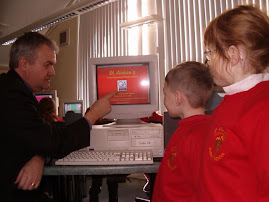_JPG.jpg)
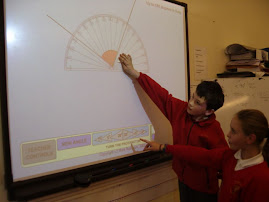_JPG.jpg)
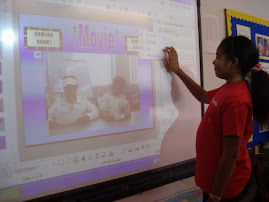_JPG.jpg)
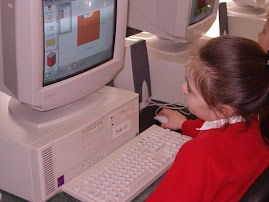_JPG.jpg)
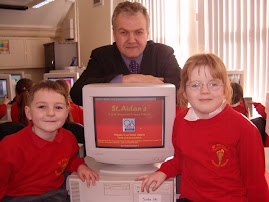_JPG.jpg)
